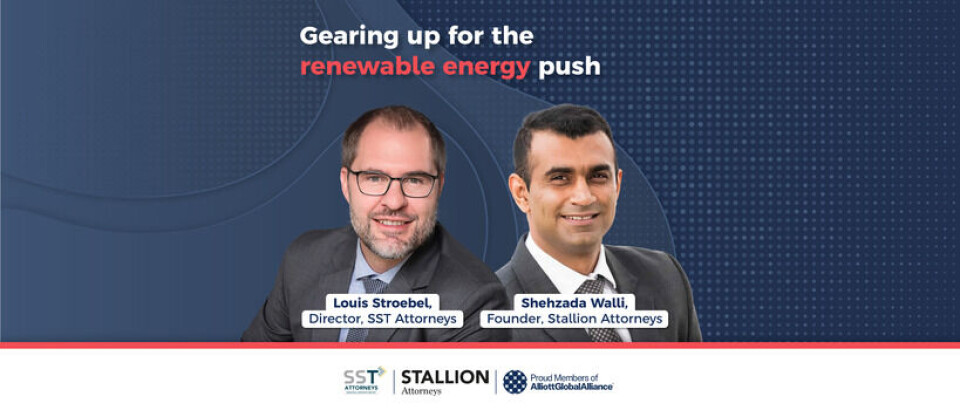Given Africa’s abundance of renewable energy resources, the potential for the market on the continent is huge, particularly when it comes to solar and wind. Yet adoption remains patchy. Just 9% of Africa’s energy generation came from renewables in 2020, according to PwC. Part of the challenge is a lack of investor confidence, coupled with outdated transmission infrastructure and regulatory hurdles.
There are signs, however, that the regulatory backdrop is starting to change. In South Africa, for instance, the government recently relaxed rules to allow the development of more private power projects, in part because of an energy crisis that is gripping the country.
That shift has led to a surge in interest in developing renewable energy projects, says Louis Stroebel, a director at Pretoria firm SST Attorneys, part of Alliott Global Alliance (AGA).
“Independent power producers can now bid for renewables projects to supply renewable energy to the grid, but there are way more bidders than the government can actually accommodate,” he says.
In addition to wind and solar, there are a number of green hydrogen projects under development in the country, such as the Ubuntu green hydrogen project in the Northern Cape and the Atlanthia green hydrogen project in the Western Cape.
Tanzania and Zanzibar also have a number of renewables projects in the pipeline, says Shehzada Walli, founder of Stallion Attorneys in Tanzania, another AGA member firm. Those projects include the Kikagati hydropower plant collaboration between Tanzania and Uganda, a 300 MW solar project under construction in Dodoma, and an urban service project in Zanzibar to improve water supply, sanitation and waste management.
“We are looking at quite a few projects that are coming up, but the only thing for us to be cautious about is whether or not these projects will have the best financial backing – that has been one of the challenges that a country like Tanzania has been facing,” Walli commented.
AGA’s network of lawyers and accountants are playing an important role in growing Africa’s renewable energy landscape. For starters, lawyers like Stroebel and Walli are helping developers to secure land and re-zone it so that it can be used for renewable energy projects.
“That’s a key role that the lawyers in the network play,” noted Stroebel, highlighting that there’s quite a bit of legal and compliance work that lawyers can assist with from start to finish. They also play a key role in structuring deals to make them attractive for investors.
“Investors want to understand how the tax system works, how the audits are worked on and what sort of accounting system is going to be put in place,” Walli explained. “Those are a few things that AGA lawyers and accountants can assist with. They also play a major role in making sure that projects are managed well.”
Having a global network of independent firms is a potential advantage here, given that many transactions will have significant cross-border elements, particularly when they involve foreign investment, says Stroebel.
“There is usually a great deal of jurisdiction-specific advice required, especially on the tax side, but also on the capital control side,” he shared. “And then locally, where the project is based, obviously, there’s also the regulatory environment to consider. So that’s where we find a great sweet spot in the collaboration between the lawyers, tax advisors, auditors and accountants.”
To join Africa Legal's mailing list please click here

